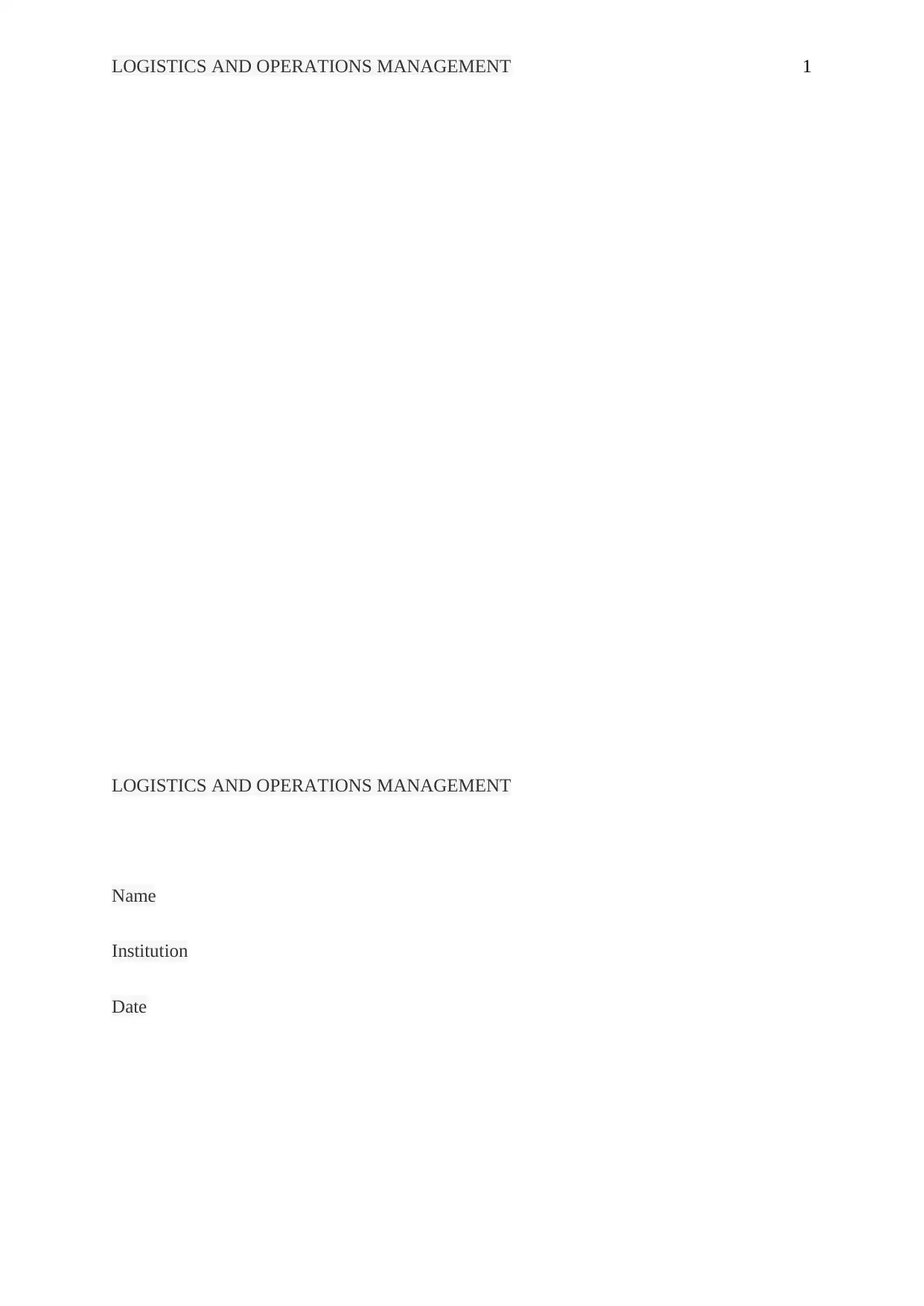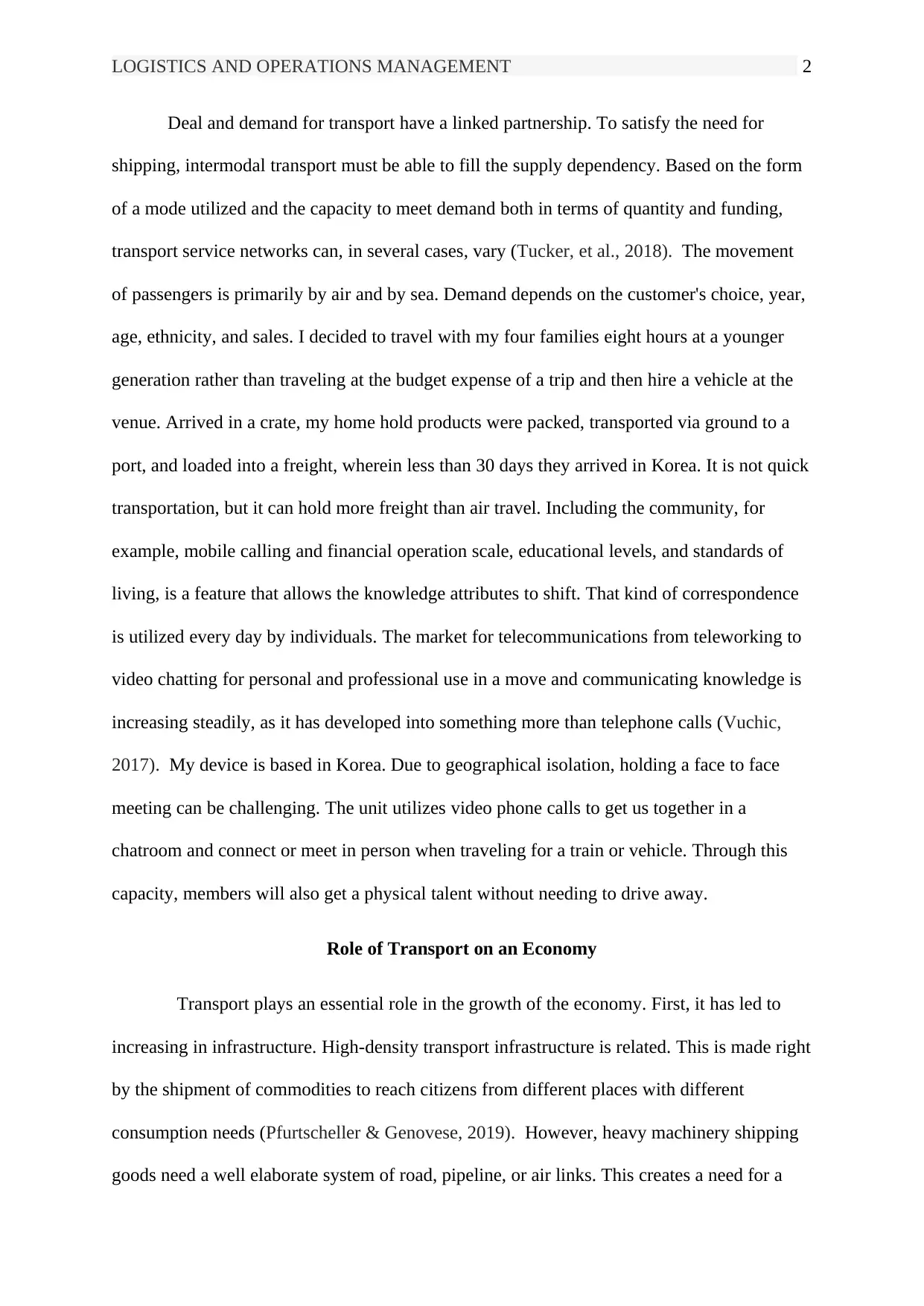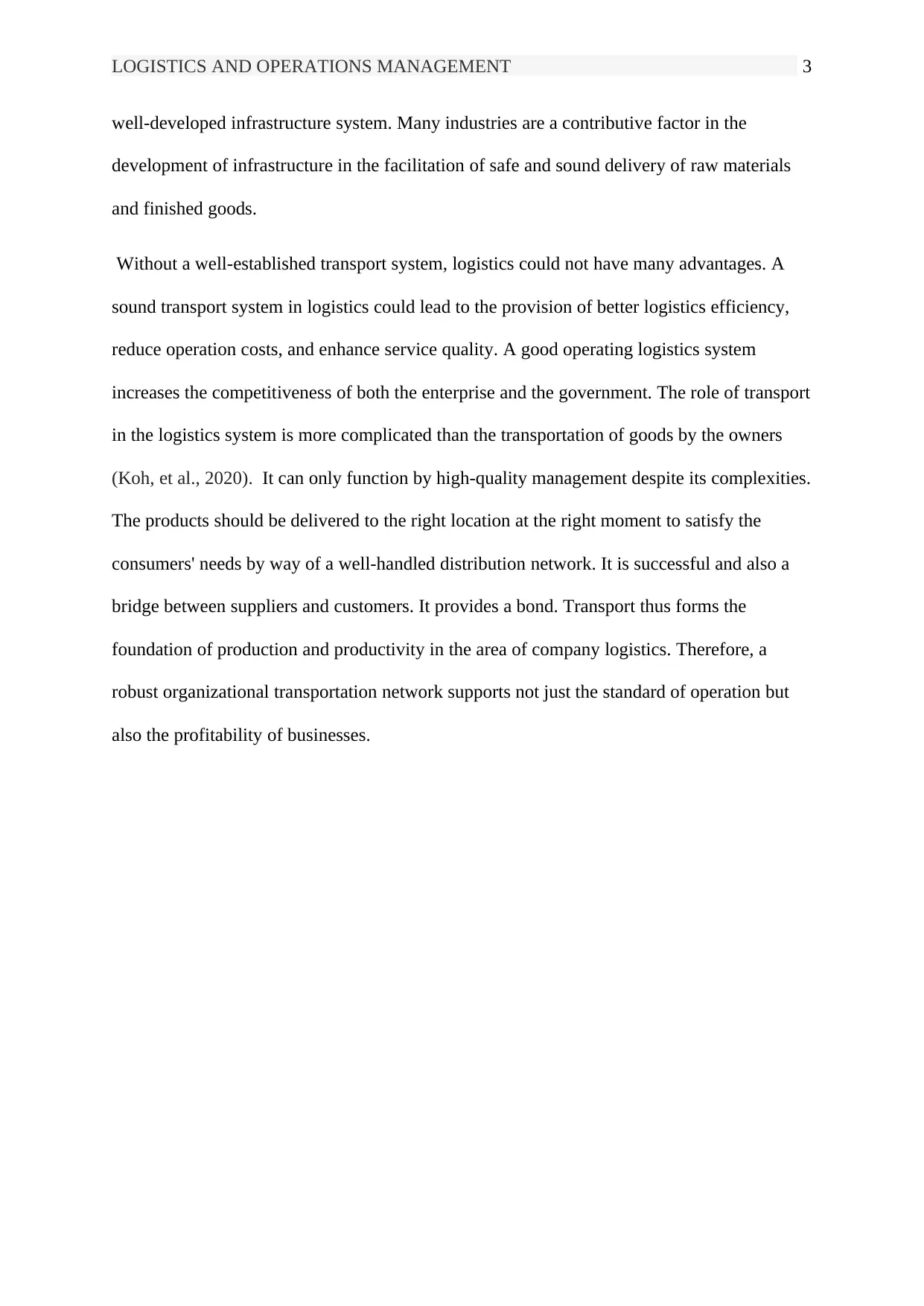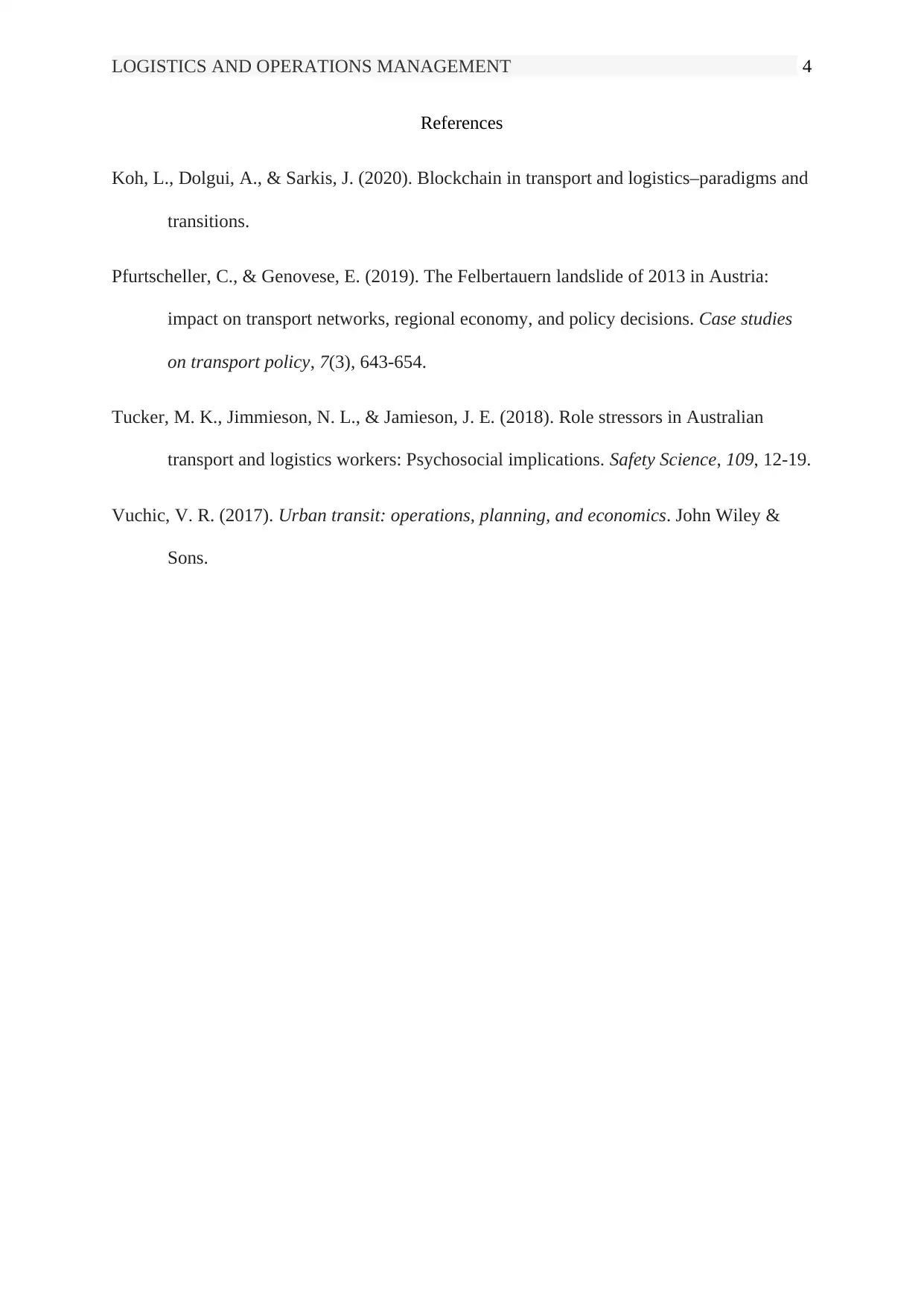Analysis of Transport Role in Logistics and Operations Management 2
VerifiedAdded on 2022/07/28
|4
|772
|23
Report
AI Summary
This report delves into the interconnected relationship between deal and demand in transport, emphasizing the importance of intermodal transport to fulfill supply needs. It explores how transport service networks vary based on the mode of transport used and their capacity to meet demand. The report discusses the role of transport in the economy, highlighting its contribution to infrastructure development and its impact on various industries. It emphasizes the need for a well-developed transport system for efficient logistics, reduced operational costs, and enhanced service quality. The analysis also addresses the complexities of logistics management, including the importance of delivering products to the right location at the right time to meet consumer needs. The report concludes by underscoring the foundational role of transport in production and productivity within company logistics, thereby supporting business operations and profitability. References to relevant academic sources are included to support the analysis.
1 out of 4











![[object Object]](/_next/static/media/star-bottom.7253800d.svg)